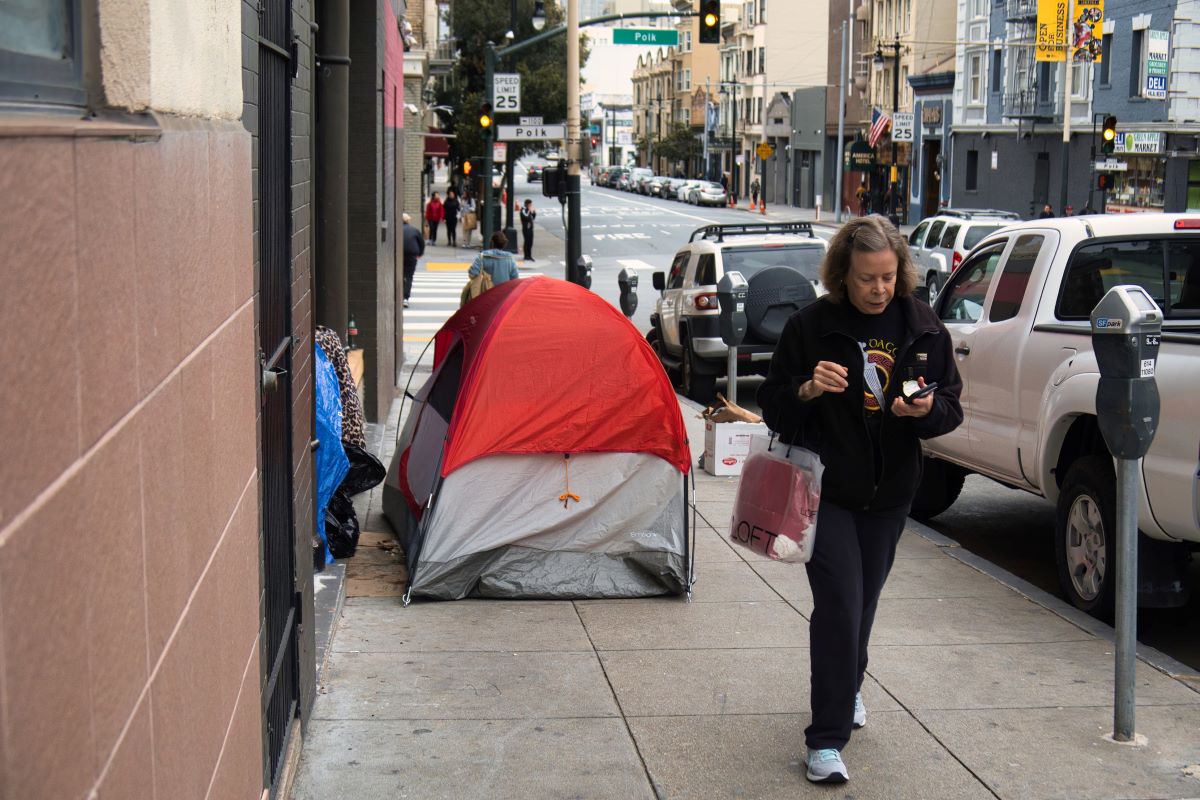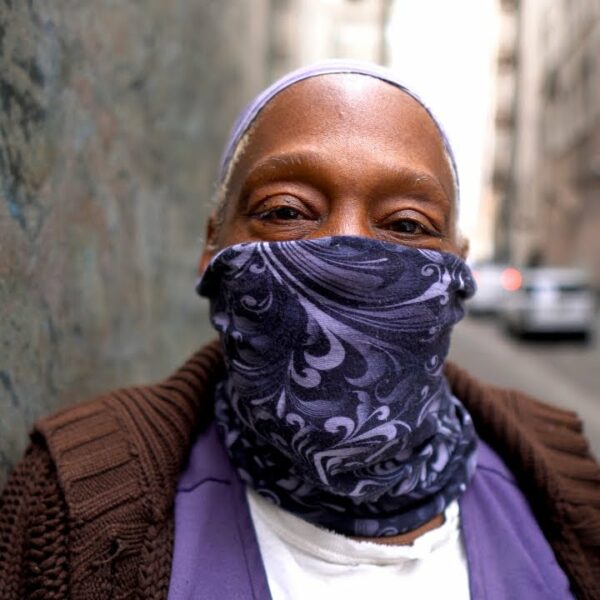A Message to Everyone Whose Heart Breaks When Seeing People Living on the Street
I write a lot here about people who have let themselves become completely callous and cut off from compassion to the point that they see homeless people not as full people but just as immoral inconveniences to their busy lives.
But there are a lot of people who aren’t fully there yet. Many people see the humanity in the people around them who are forced to endure such inhumane treatment. It’s that compassion that makes it uncomfortable for them to engage with- or, in a common phrasing, just breaks their heart.
Homelessness is an uncomfortable thing to witness. It’s even more uncomfortable to experience. It makes complete sense to be upset when you see it all around you, but we must harness that feeling and transform it into action.
Don’t shy away from it, and let it keep you from engaging. Don’t let it harden into calcified callousness. And most of all, don’t push it away and convince yourself that somehow, these people must deserve what they got. Use it for good.
But What Can I Do?
It’s easy to give in to the thinking that you’re just one person who couldn’t possibly make a difference in such a significant problem. But don’t let that thought stop you.
When you break it down into smaller pieces, it sounds much more achievable. Couldn’t one person make a difference in another person’s life? And if you band together and combine your efforts with a group of other people, how much more impact could there be?
Luckily, there are existing organizations aimed at solving homelessness almost everywhere. You don’t need to reinvent the wheel and start a grassroots movement from scratch. You just need to research the groups already doing this work in your local area and see how to connect with them to have your unique skills put to use.
I recommend joining an organization led by homeless or formerly homeless people, or at the very least, one that takes most of their direction from such folks. It’s hard to help anyone when you’re just guessing at what they might need or want rather than listening to what they’re asking for.
Why Is This My Responsibility?
If you, like myself, are a resident of a wealthy nation that has more than enough resources to keep all of its people housed and fed if it so chose, you may be wondering why it’s your job to make sure that your neighbors aren’t dying in poverty on the streets each night. And in short, it’s not your job.
It’s the job of a government to ensure that all its people can achieve a minimum quality of life. But they’re largely asleep at the wheel. So, in the meantime, regular people have stepped up to prevent as much human suffering and loss of life as possible.
If you want to try and get things done through the proper channels, contact your representatives or join an advocacy group focusing on moving the needle politically to solve homelessness. But the political process is notoriously slow, so you may take other actions while waiting.
That doesn’t mean it’s not important. In fact, public advocacy is essential for the average person to influence political change. We can tell and show politicians what changes we want to see through our words and actions.
Invisible People has pioneered this method of changing perceptions about homeless people, which we know can have a huge ripple effect. Changing how we think about homelessness can change how we treat homeless people, which can change people’s lives.
Isn’t This Selfish?
Looking at the title of this post, you may have thought it sounded selfish. Housing people so that you don’t feel uncomfortable when you see people sleeping outside isn’t the most palatable reason to get into this line of work.
But ultimately, those people will still be housed whether your motivation was selfish or selfless. As long as you’re not causing further harm with a paternalistic attitude or outright predatory behavior, I don’t think anyone will turn down your help just because you’re not entirely “pure of heart.”
If we really interrogate this, no one’s motivation is just one thing. So yes, the discomfort of passing encampments on your way to work may have been the thing that ultimately spurred you into action. But behind that are a hundred more little reasons.
Maybe your discomfort with seeing homeless people stems from a deep compassion and belief that no one should be forced to live cut off from the necessary life resources while others hoard more than they could ever use.
The fear you feel having to explain homelessness to your child may be a manifestation of your fear that they’ll grow up in a world that doesn’t even guarantee the bare minimum as a human right.
All of that is for you to unpack, but many motivations can lead a person toward respectful and effective activism, and they’re not all black and white.
Save Yourself Some Heartbreak and Solve Homelessness
Strong, visceral reactions like the ones you experience every time your heart breaks for an unhoused person can be harnessed to move mountains. Wanting to avoid negative emotions can be just as powerful a motivator as seeking out positive ones, so these feelings can prompt you to make big moves if you let them.
Offering unhoused people safe, secure, and permanent housing is an obvious move that can have tremendous not-so-obvious knock-on effects. First, it immediately decreases the suffering of the people who receive housing and allows them to heal and give back to their communities. Second, it causes a positive ripple outward through everyone who was uncomfortable seeing homeless people, feared homelessness for themselves, or just had an uneasy feeling and never knew why.
Like a heavy weightlifting off our shoulders, we may not fully understand the far-reaching negative impact of homelessness on society until it’s finally gone. Let’s find out what life can be like on the other side.
Help Us Make the Truth Louder
Invisible People is on the frontlines of the growing homelessness crisis, where evidence-based solutions take a backseat to political agendas. We’re the only newsroom dedicated to shedding light on homelessness and its related issues. As we kick off our Fall Pledge Drive, your support is crucial. We need your donation to amplify the truth and counter the narrative of criminalization, all while addressing the skyrocketing rents.
With homelessness reaching a crisis level, independent news is indispensable. Your tax-deductible contribution empowers us to pay our reporters, reach a wider audience, produce impactful videos and documentaries, and advocate for real solutions. Join us by supporting the truth about homelessness. Together, we can make a difference.
We are not a corporate newsroom; we depend entirely on our donors to continue our vital work. Your contribution today can make a real difference. Will you help us?












